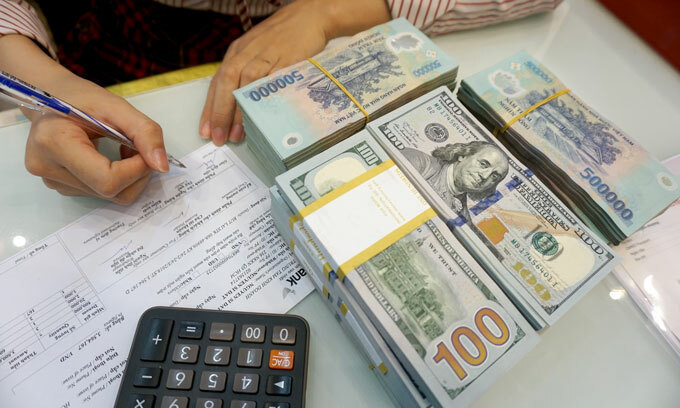State Bank of Vietnam Commits to Action
Vietnam’s central bank is taking decisive steps to support the dong. State Bank Governor Nguyen Thi Hong confirmed the bank’s readiness to sell US dollars if needed. This action aims to prevent further depreciation of the dong, keeping Vietnam’s currency stable in a volatile global market. The bank is also determined to control inflation, balancing this goal with the nation’s economic needs.
Rising Pressure on the Dong
The dong faces significant pressure. Trading at 25,300 per dollar this week, the currency hovers close to a historic low. The SBV set Monday’s reference rate at 24,263 dong per dollar, the lowest since 2005. The currency has dropped 4% in value this year alone, as the dollar strengthens worldwide. Governor Hong reiterated the central bank’s focus on stability and market resilience.

Balancing Interest Rates and Exchange Stability
The SBV walks a fine line between interest rate cuts and currency stability. Hong emphasized the importance of maintaining a zero-interest rate on dollar deposits. A higher rate could push depositors to switch to dollars, putting additional pressure on the dong. The bank remains cautious in its interest rate policy to avoid destabilizing the currency.
Tackling Rising Bad Debt
Vietnam’s banking sector faces rising bad debt, now at 4.55% of total lending. Total loans exceed 120% of Vietnam’s GDP, prompting warnings from the World Bank. The SBV is urging banks to reduce operational costs, which could lead to lower lending rates for businesses. The central bank remains vigilant in monitoring the sector’s debt risks.
Coordinated Efforts Between Fiscal and Monetary Policies
The SBV aims to coordinate closely with the finance ministry. Hong highlighted the need to expand fiscal policy responsibly to reduce pressure on monetary policy alone. This approach seeks to maintain macroeconomic stability without over-relying on interest rate adjustments.
Growing Green Finance in Vietnam
Green finance in Vietnam has expanded, reaching around 650 trillion dong ($25.7 billion). These funds largely support renewable energy and sustainable agriculture projects. Since 2017, green finance investments have grown by 17% annually, demonstrating Vietnam’s commitment to environmental progress within its banking sector.
Monitoring the Gold Market
The SBV keeps a close watch on the global gold market to manage domestic prices effectively. The bank aims to narrow the gap between local and international gold prices. This strategy aims to prevent speculation and strengthen the dong’s stability.
Through these targeted policies, the SBV is striving to stabilize the dong, control inflation, and ensure long-term economic resilience for Vietnam.
Our Visitor






 Users Today : 38
Users Today : 38


